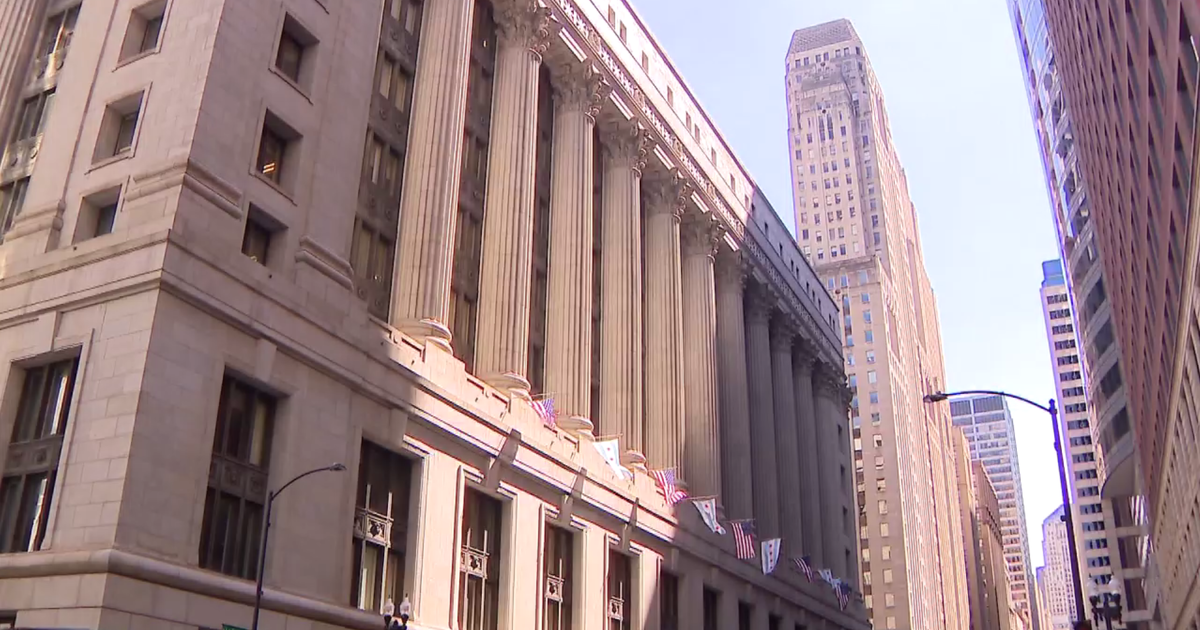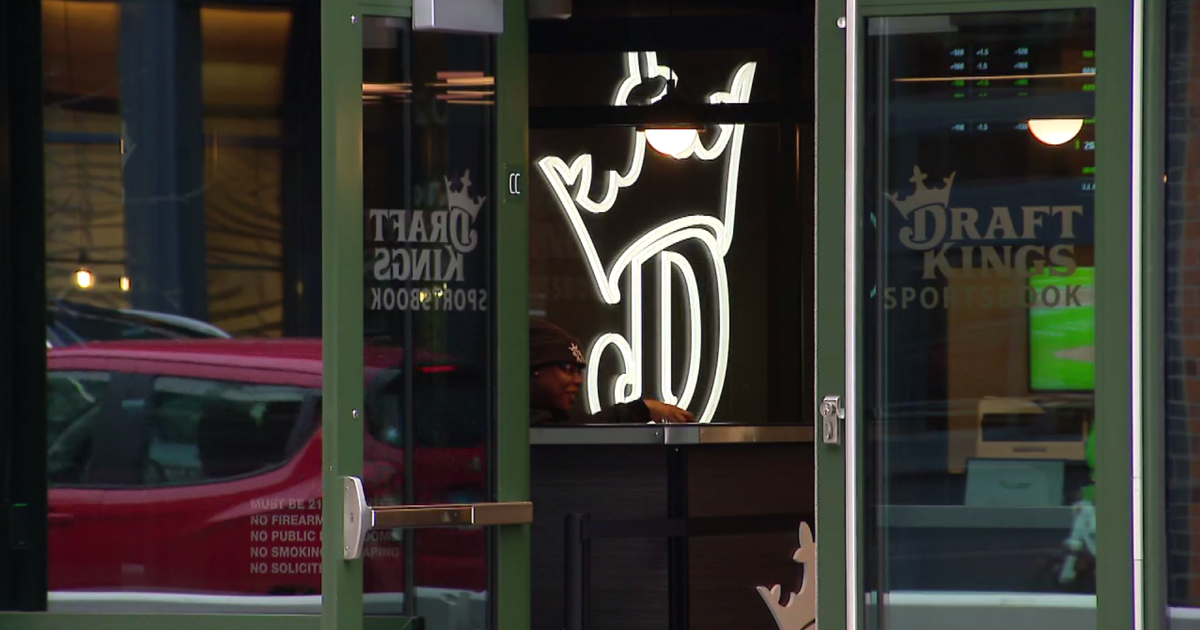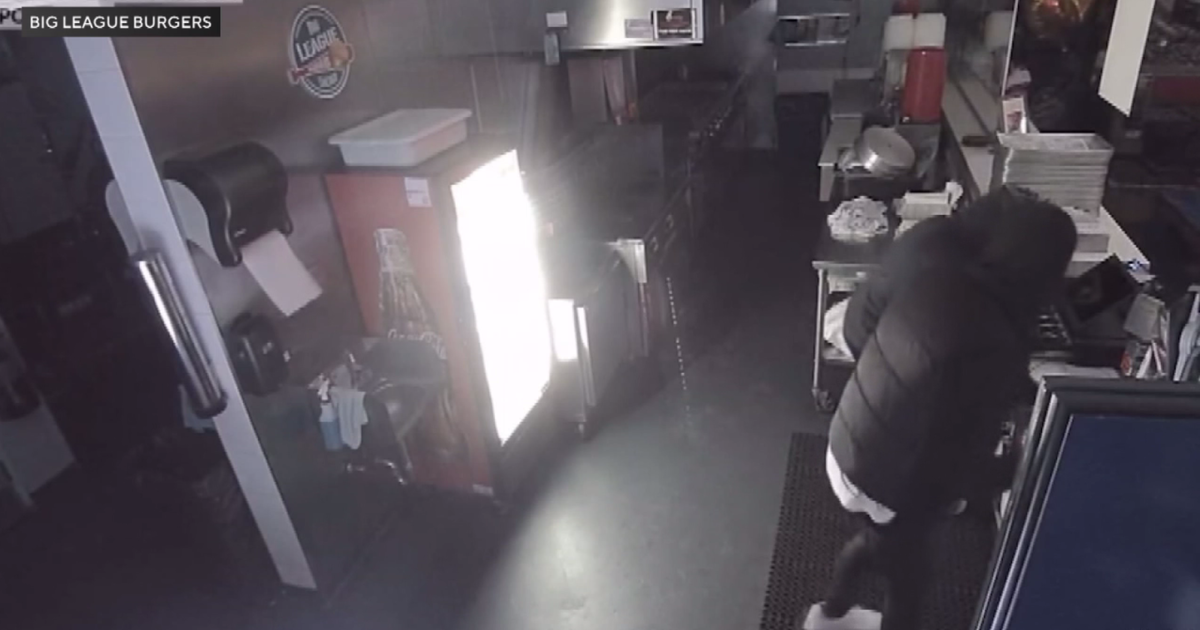Prosecutors, Blagojevich Spar Over Meaning Of His Words
UPDATED 06/06/11 6:16 p.m.
CHICAGO (CBS) -- During a full day of cross-examination at Rod Blagojevich's corruption retrial, federal prosecutors repeatedly tried to use the former governor's own words to discredit him and paint him as dishonest.
Assistant U.S. Atty. Reid Schar spent the bulk of the day on Monday discussing Blagojevich's alleged attempt to get a Cabinet position from the Obama administration in exchange for appointing President Barack Obama's friend Valerie Jarrett to replace him in the U.S. Senate.
Monday's proceedings lacked the fireworks of the prosecution's first hour of cross-examination on Thursday, when Schar immediately painted Blagojevich as a liar, but there were still many contentious moments as Schar and Blagojevich squabbled over the meaning of his words.
Blagojevich has insisted that he never trade to trade an appointment of Jarrett for a top job for himself, But Schar played a November 2008 phone call in which Blagojevich talks about a possible "trade" in connection to naming Jarrett to the Senate seat and his own desire to be Secretary of Health and Human Services.
In the call, Blagojevich told adviser Doug Scofield that Jarrett would be helping the budding Obama administration make Cabinet picks and that she might be willing to push for Blagojevich to get the HHS post if she can be a Senator.
"So now she's there and they're sortin' out Cabinet positions and stuff. If you're her and you really want to be a U.S. Senator and you've been told you can be that if he gets this (HHS)," Blagojevich said. "I'm willing to trade the thing I got tightly held, to her for something she doesn't hold quite as tightly."
"Were those your words to Mr. Scofield that day?" Schar asked. Blagojevich said "Yes."
"You're the one who used the word trade, correct?" Schar added.
"I said those things," Blagojevich admitted.
Blagojevich said he never really believed he could be appointed to a Cabinet post, but Schar shot back that "you've made a career out of taking long shots, haven't you? You applied to Harvard."
"Yes," Blagojevich answered with a laugh.
LISTEN: Newsradio 780's John Cody reports
Podcast
LISTEN: Newsradio 780's Nancy Harty reports
Podcast
Schar also pointed out that Blagojevich told Scofield in a different phone call that he believed the Obama team was "arrogant" for not offering him anything more than appreciation if he would appoint Jarrett to the seat.
"I mean I'll do Valerie Jarrett. I just don't, if they, but if they feel like they can do this and not f***in' give me anything under, just some vague assurances or somethin'. Then I'll f***in' go Jesse Jr.," Blagojevich said. "I mean the arrogance of these f***in' people."
Again, Blagojevich conceded that those were his words, although he asked if he could elaborate before Schar cut him off with a new question.
Schar also questioned Blagojevich about the allegation that Blagojevich was also scheming to get the Obama administration to help set up a non-profit group, funded by wealthy political donors, that Blagojevich could run after leaving the governor's office.
Prosecutors contend Blagojevich wanted to set up a job for himself to run a non-profit health care advocacy group with a salary of as much as $750,000 in exchange for picking Jarrett for the Senate.
Schar pointed to a phone call Blagojevich had with Balanoff on Nov. 12, 2008, in which the governor asked whether or not wealthy Obama donors like Warren Buffet and George Soros could fund a group like that.
"And you know George Soros and Buffet and all those guys … you know, overnight can put 10, 15,20 million dollars in an advocacy group like that couldn't they?" Blagojevich asked Balanoff in that call.
On the stand, Blagojevich insisted that the money he was talking about would be "for the organization, not for me."
But Schar pointed out that Blagojevich had repeatedly talked about running that organization, hinting that he'd use the money to pay himself a large salary.
"I could possibly work there when I'm no longer governor, it's just an idea," Blagojevich said.
Blagojevich: "Unsaid" Meant Don't Connect Senate Seat To Non-Profit
But Schar tried to show that Blagojevich was really trying to exchange a Jarrett pick for funding for the non-profit by pointing to a call Blagojevich had with Scofield, directing him to call lobbyist John Wyma and have him call Obama's chief of staff, Rahm Emanuel, about the idea.
"My strategic goal would be to have Rahm have it in his head sooner rather than later. Like today, tomorrow," Blagojevich told Scofield in the call.
Later in the call, Scofield asked "This, we're not talking as part of discussions for anything else?"
Blagojevich's response? "Well, it's unsaid. You understand what I'm sayin'? Yeah. It's unsaid."
On the stand, Blagojevich explained that "unsaid" meant Scofield should not connect the Senate seat appointment to the non-profit idea.
"When you said unsaid … you were saying don't connect the two?" Schar asked incredulously.
"That's what I'm saying," Blagojevich said.
"The fact is, sir, that you wanted it [the non-profit idea] communicated quickly because it was in connection to the Senate seat," Schar said.
"No, not necessarily," Blagojevich said. "I'd made no decision. I didn't know what I wanted to do yet."
Prosecutor, Blagojevich Spar Over Tribune Allegation
Prosecutors even tried to use one of Blagojevich's post-arrest interviews to discredit him on Monday, as he focused on the former governor's alleged offer to support state funding for a planned renovation of Wrigley Field – then owned by the Tribune Company – if the company fired the Chicago Tribune editorial board.
Schar asked Blagojevich about a phone call he had with Harris, in which Blagojevich told Harris to send a message to Tribune financial adviser Nils Larsen that the company should fire its editorial board.
"I was venting," Blagojevich said.
"You said fire all those effers?" Schar asked.
"That sure sounds like me," Blagojevich answered.
Schar then pointed to a later conversation with Harris in which he told Blagojevich that Larsen got the message to "lay off" on Blagojevich.
Blagojevich said he wanted the Tribune to stop writing editorials calling for his impeachment and to start supporting his legislative initiatives.
Then, Schar showed jurors the transcript of a January 2009 Rachel Maddow interview in which Maddow asked if Blagojevich ever directed his chief of staff, John Harris, to tell the Tribune to "lay off" with its negative editorials.
"John Harris never told them to lay off on your behalf?" Maddow asked in the interview.
"Never directed, never directed to do any of that," Blagojevich told her.
"That was a lie, was it not?" Schar asked, referring to Blagojevich's calls with Harris.
But Blagojevich said Schar was misinterpreting his meaning of "lay off" in the Maddow interview.
"I'm talking about firing people at the editorial board, that's what I'm saying there," Blagojevich testified.
In apparent disbelief, Harris asked, "When she says 'John Harris never told them to lay off on your behalf?' it's your testimony that you understood her to mean lay people off?"
"The way I read that and recall now, I'm talking about laying people off at the editorial board, that's what I'm saying," Blagojevich said, explaining that he was telling Maddow that he never directed Harris to tell the Tribune to fire its editorial board.
Emanuel: Blagojevich Wanted Me To Appoint His Successor In Congress
Earlier, for the first time in public, prosecutors mentioned that Rahm Emanuel had asked Blagojevich to appoint an interim successor to Emanuel's congressional seat in 2008 when he joined the Obama administration.
Schar said that Emanuel wanted Blagojevich to name a replacement until a special election was held to fill the seat, because it would have given Emanuel's preferred pick a leg up in the special election.
Blagojevich said his advisers informed him that such a move would be unconstitutional, but admitted he told one of his advisers, "That's a favor worth doing."
Prosecutor Tries To Poke Holes In Defense Of Racetrack Shakedown
Schar also spent part of the day trying to contradict Blagojevich's defense against various alleged shakedown schemes, including the allegation that he was trying to extort a $100,000 campaign contribution from racetrack owner John Johnston for legislation to benefit the horse racing industry.
Blagojevich has claimed that he held off on signing legislation to require Illinois casinos to pay financial subsidies to the horse racing industry because he was afraid his friend and fundraiser, Chris Kelly, was "meddling" with the issue to benefit himself.
According to Blagojevich, Kelly -– who had recently been indicted for tax fraud -– had called him on Thanksgiving night in 2008 and mentioned that he was trying to get a pardon from then-President George W. Bush.
To do that, Blagojevich said he believed Kelly was trying to use political connections in Florida, including ties to the Johnston family, to convince then-Florida Gov. Jeb Bush to ask his brother, the president, for a pardon for Kelly.
Blagojevich said he mentioned the conversation to his general counsel, Bill Quinlan, who advised him that Kelly had some interest in the racetrack legislation. As a result, Blagojevich said he believed Kelly was trying to show the Johnston family that he could get Blagojevich to sign the racetrack legislation, in order to enlist their help in brokering a pardon from President Bush.
But Schar pointed out Monday that Blagojevich never mentioned to those concerns with lobbyist Lon Monk when he sent Monk to request the $100,000 in campaign cash from Johnston in December 2008.
Schar noted that, in a recorded conversation with Monk on Dec. 4, 2008, the only concern that Blagojevich seemed to raise with Monk was whether he would get the campaign cash before signing the racetrack legislation.
"You wanted your money first -- sign the bill later, correct?" Schar asked.
But Blagojevich insisted he was only concerned that there be some "separation" between the time he signed the bill and the time he got the contribution.
"I can't say one came before the other. I'm not sure that was the case," Blagojevich said. "I wanted separation."
Schar then hammered home that Blagojevich never raised any concerns about Chris Kelly "meddling" in the racetrack issue during his conversation with Monk.
"Not once, sir, in this entire conversation, not once, did you bring up the name Chris Kelly, did you?" Schar said, adding that Blagojevich never said he "can't sign the bill because Chris Kelly has infected the issue?"
"Instead, sir, the agreed language … was that you were concerned if you didn't sign the bill, you wouldn't get your money, correct?" Schar said.
But Blagojevich insisted he never tied the two issues together.
"I wouldn't cross any lines. One was not for the other. … That's what I cared about," Blagojevich said.
Although Blagojevich conceded that campaign funds were "undoubtedly" important to him, he said he didn't see campaign cash as a "personal benefit."
"My political campaign fund is not of personal value to me," Blagojevich said, adding that he was "very scrupulous in never using the campaign funds for personal use."
Prosecutor, Blago Spar Over Memory About Children's Memorial Issue
Late Monday afternoon, Schar began going after Blagojevich on the allegation that he tried to shake down Children's Memorial Hospital CEO Patrick Magoon for $50,000 in campaign cash in exchange for Blagojevich passing a rate increase for doctors serving Medicaid patients.
Under questioning from his own lawyers, Blagojevich had testified that he asked Magoon to keep quiet about his decision to approve the rate increase because at the time, he had been making large budget cuts.
"I was breaking policy because I was cutting billions of dollars out of the state budget … So I asked him not to tell anybody about this because I didn't want the word to get out that I was making an exception," Blagojevich testified earlier in the trial.
But on Monday, Blagojevich said he couldn't remember specifically saying that to Magoon.
"I explained it somewhat along those lines," Blagojevich said. "I believe, my recollection is, I may have done that. … That's two and a half years ago."
But Schar again asked if Blagojevich remembered raising budget concerns when he told Magoon he was going forward with the rate increase.
"No one's asking you for exact words," Schar said. "Did you say any words ... to imply that you were breaking policy?"
"My recollection is I may have done that. … That's two and a half years ago," Blagojevich said.
Clearly growing frustrated, Schar asked how Blagojevich can remember his precise score on a test in college and a number of verbatim quotes he had testified about earlier, but couldn't remember whether he told Magoon about budgetary concerns.
"You're not certain, one or the other, whether or not you told Mr. Magoon anything about the budget?" Schar asked.
"I was speaking, I think, somewhat parenthetically when I was testifying. … I have a tendency to say a lot of different things, to keep talking and try and say as much as I can," Blagojevich said. "I was trying to explain the rationale behind telling Mr. Magoon 'don't tell anybody.'"
--Todd Feurer, CBS 2 Web Producer



